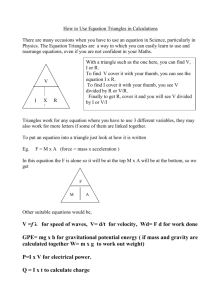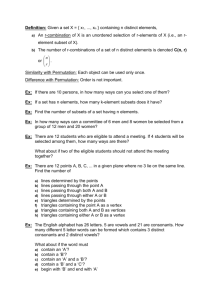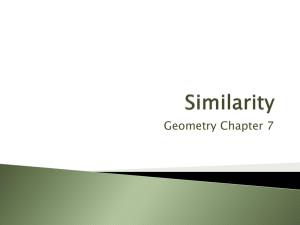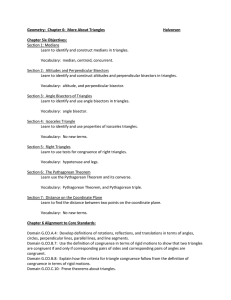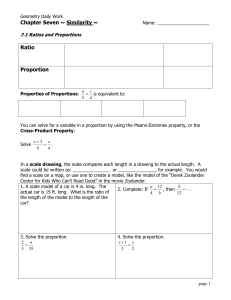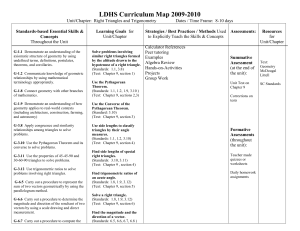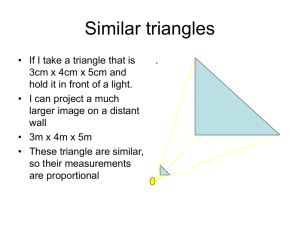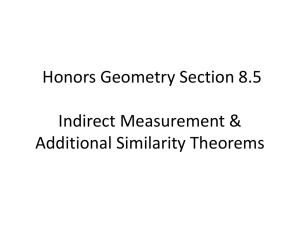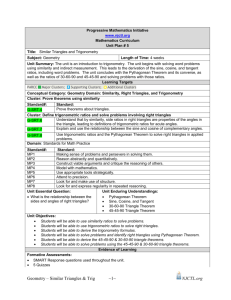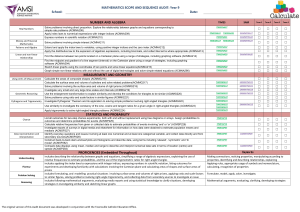Triangles - Arkansas Department of Education
advertisement
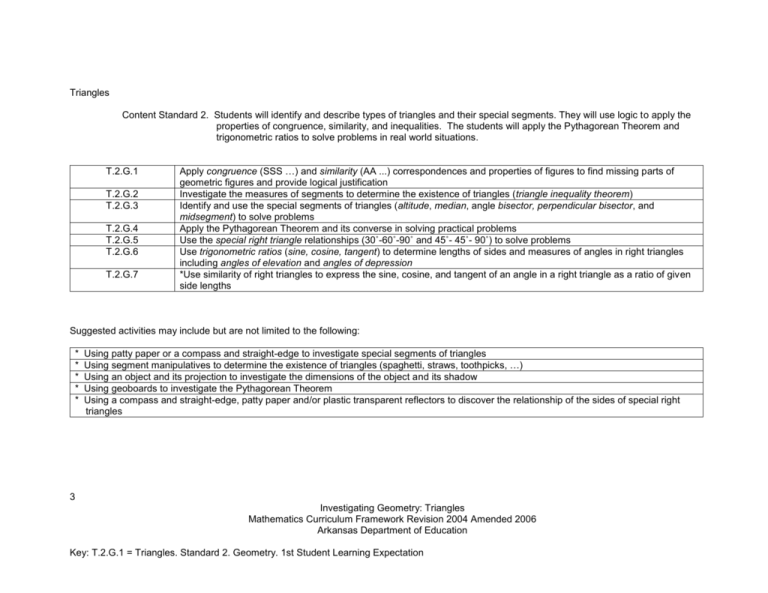
Triangles Content Standard 2. Students will identify and describe types of triangles and their special segments. They will use logic to apply the properties of congruence, similarity, and inequalities. The students will apply the Pythagorean Theorem and trigonometric ratios to solve problems in real world situations. T.2.G.1 T.2.G.2 T.2.G.3 T.2.G.4 T.2.G.5 T.2.G.6 T.2.G.7 Apply congruence (SSS …) and similarity (AA ...) correspondences and properties of figures to find missing parts of geometric figures and provide logical justification Investigate the measures of segments to determine the existence of triangles (triangle inequality theorem) Identify and use the special segments of triangles (altitude, median, angle bisector, perpendicular bisector, and midsegment) to solve problems Apply the Pythagorean Theorem and its converse in solving practical problems Use the special right triangle relationships (30˚-60˚-90˚ and 45˚- 45˚- 90˚) to solve problems Use trigonometric ratios (sine, cosine, tangent) to determine lengths of sides and measures of angles in right triangles including angles of elevation and angles of depression *Use similarity of right triangles to express the sine, cosine, and tangent of an angle in a right triangle as a ratio of given side lengths Suggested activities may include but are not limited to the following: * * * * * Using patty paper or a compass and straight-edge to investigate special segments of triangles Using segment manipulatives to determine the existence of triangles (spaghetti, straws, toothpicks, …) Using an object and its projection to investigate the dimensions of the object and its shadow Using geoboards to investigate the Pythagorean Theorem Using a compass and straight-edge, patty paper and/or plastic transparent reflectors to discover the relationship of the sides of special right triangles 3 Investigating Geometry: Triangles Mathematics Curriculum Framework Revision 2004 Amended 2006 Arkansas Department of Education Key: T.2.G.1 = Triangles. Standard 2. Geometry. 1st Student Learning Expectation
